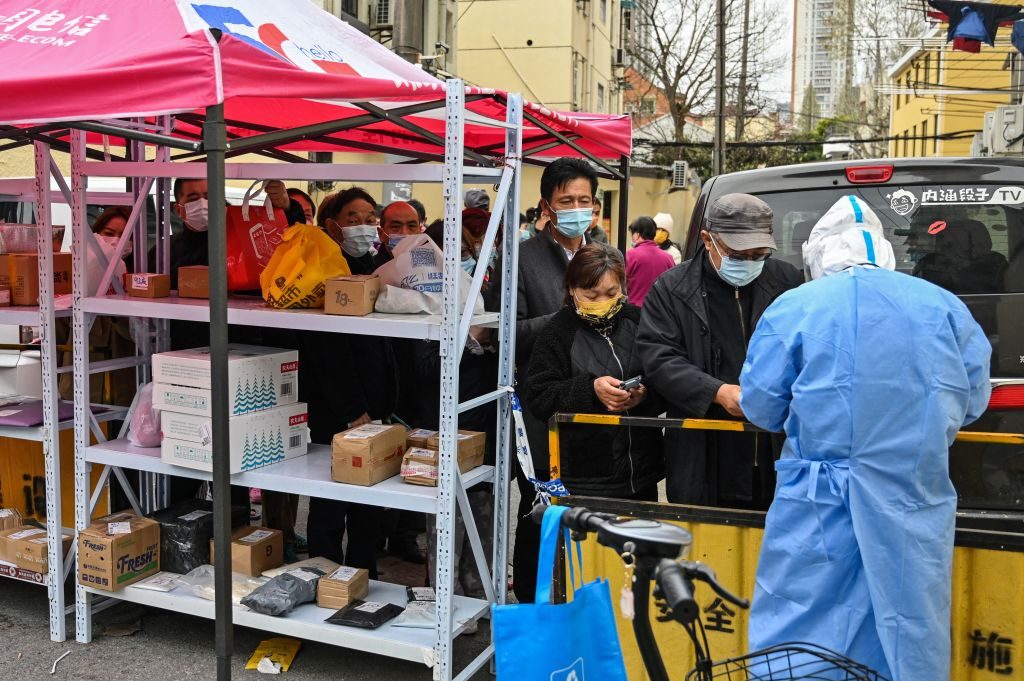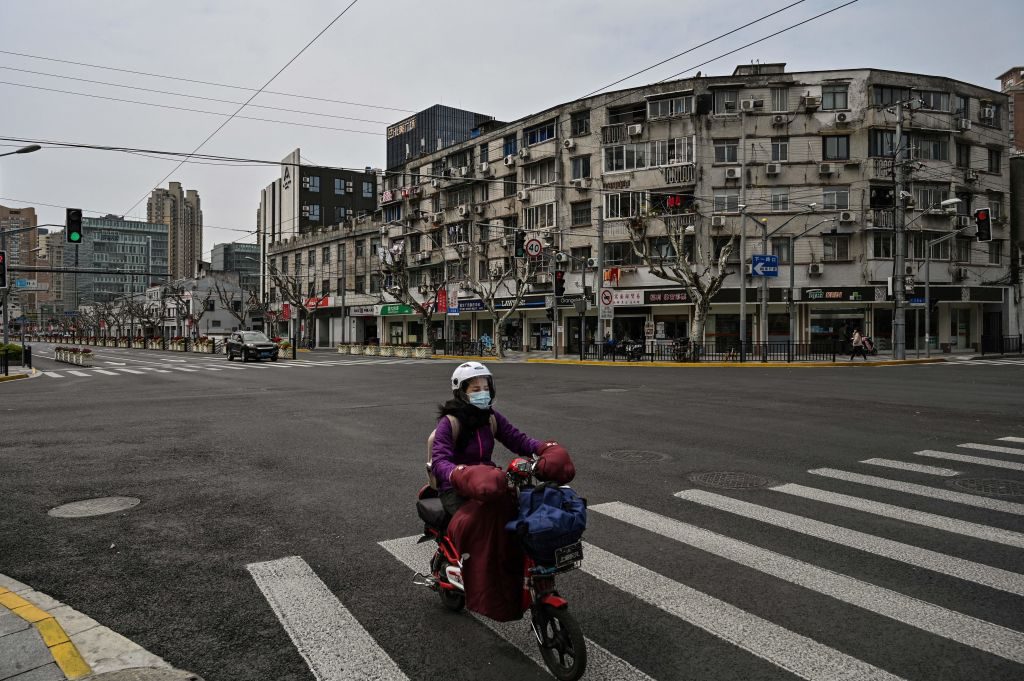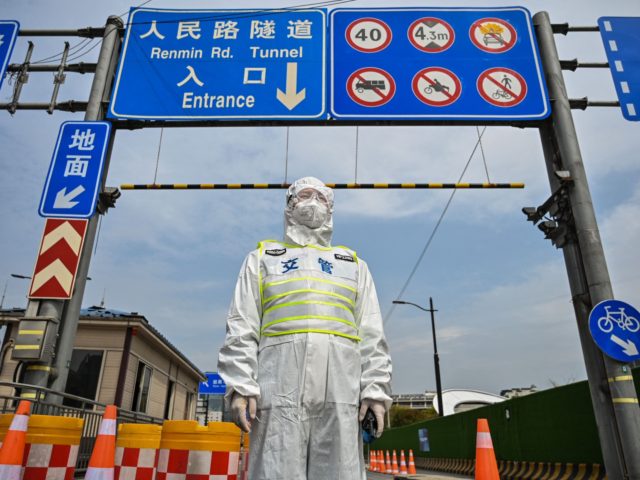Shanghai launched China’s largest coronavirus lockdown in two years on Monday, putting 26 million people into quarantine in two phases projected to last five days apiece. The vital financial district of Pudong was locked down first.
The Associated Press reported panic sweeping the city as residents were forced to lock themselves in their homes and avoid all contact with other people. Communist Party authorities shuttered “non-essential” offices and businesses, suspended transportation, and canceled public events. Panic-buying cleaned out store shelves in the last hours before hazmat-suited enforcers began setting up roadblocks and checkpoints.
“Shanghai detected another 3,500 cases of infection on Sunday, though all but 50 were people who tested positive for the coronavirus but were not showing symptoms of [Chinese coronavirus]. While people who are asymptomatic can still infect others, China categorizes such cases separately from ‘confirmed cases’ – those in people who are sick – leading to much lower totals in daily reports,” the AP noted.
Nationwide, China reported its highest coronavirus case numbers since the beginning of the pandemic over the weekend.
Tesla reportedly suspended production at its Shanghai factory in the Pudong area for four days, after unsuccessfully attempting to set up a “closed-loop management system” – i.e. requiring workers to live on factory premises so the plant could remain open. Tesla did not make a public announcement of the suspension, but Shanghai employees told reporters they were quietly told to stay at home before their Monday work shifts.

Residents are being checked at the entrance of a residential area that is in lockdown, in Jing’ an district in Shanghai on March 28, 2022. (HECTOR RETAMAL/AFP via Getty Images)
The International Air Transport Association (IATA) announced on Friday that its 78th annual general meeting and World Transport Summit in June will be moved from Shanghai to Doha, Qatar due to “continuing [Chinese coronavirus]-related restrictions on travel to China.”
“It is deeply disappointing that we are not able to meet in Shanghai as planned,” said IATA Director-General Willie Walsh.
Shanghai is China’s largest and wealthiest city. The lockdown imposed on Monday will be the largest in China since Wuhan, the city where the coronavirus outbreak began, was quarantined two years ago.
CBS News noted that “closing down all of Shanghai at once was apparently not an option,” even given the Chinese government’s insistence on sticking to its “dynamic zero-Covid” policies against the fast-spreading omicron variant, so the city was divided along the Huangpu River for the two-phase citywide lockdown. The second phase will cover the western half of the city, which is more heavily populated but has fewer vital installations.
“If Shanghai, this city of ours, came to a complete halt, there would be many international cargo ships floating in the East China Sea. This would impact the entire national economy and the global economy,” a member of Shanghai’s coronavirus task force explained on Saturday.
Outside observers also noted the Chinese public is suffering from “pandemic fatigue” and growing increasingly irritated with the lack of any strategy for getting back to normal life, as most of the rest of the world is learning to “live with Covid.”

A woman drives a scooter down a quiet street in Yangpu distric, in Shanghai on March 28, 2022. Millions of people in China’s financial hub were confined to their homes on March 28 as the eastern half of Shanghai went into coronavirus lockdown. (HECTOR RETAMAL/AFP via Getty)
Chinese state media had little to say about pandemic fatigue, instead portraying Shanghai residents as dutifully complying with lockdown requirements and stoically enduring their hardships.
The state-run Global Times only quoted Shanghai residents who had absolute faith in their government’s ostensibly flawless pandemic controls:
“I’m not worried, as my community has been put under closed-loop management for 14 days and we have prepared daily commodities sufficiently,” a 41-year-old resident living in Pudong surnamed Wu told the Global Times on Monday. “The only thing we need to do is to follow the instructions and we hope the virus’ spread can be curbed as soon as possible; our daily normal life will come back.”
[…]
“I was allowed to go out for regular antenatal care under the closed-loop mechanism. I’m not concerned as express delivery and logistics still work to ensure our daily routine,” a 31-year-old resident surnamed Huang told the Global Times on Monday, who is living in Pudong.
“Closed-loop management protects us from the virus,” Huang said, noting that she found the street was empty and nearby stores were closed when she went out on Monday.
The Xinhua state news service praised China’s “dynamic zero-Covid” policies as “effective and necessary.”
“The claims from some Western countries that China is compromising its economic and social development for the sake of epidemic control are largely a misunderstanding of the aforementioned approach,” Xinhua sniffed.
“The anti-epidemic efforts over the past years proved the effectiveness of China’s approach that accords with the country’s reality. Both the country’s economic performance and COVID-19 response have fully demonstrated the strength and effectiveness of the dynamic zero-COVID approach,” Xinhua insisted.

COMMENTS
Please let us know if you're having issues with commenting.